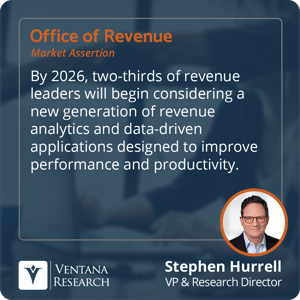“Lead to cash” is an often-used term and is a companion to “quote to cash” and “order to cash”. What they all represent is an approach which recognizes that there is a process designed to convert a lead from a qualified interest to an active sale, through quote and contract negotiation, to order or contract, invoice and payment. “Quote to cash” and “order to cash” are subsets of this process, with different starting places, but ultimately end in the same place: with a payment for a delivered product or service.
And while this is an important part of any organization’s revenue management process, the real import of this is not just the process that exists today, but whether this process can be tracked such that you can reverse engineer the desired outcome, going from the “cash” part to the “lead” part. This is sometimes referred to as the attribution problem: how does an organization know, especially the marketing and sales departments, which outbound activities are most likely to eventually lead to cash or, in other words, a sale?
Should there be a general economic slowdown, the ability to identify what outbound and sales activities are more likely to result in a sale becomes even more important. As pressure builds to cut costs, one of the primary targets is the marketing budget. As Chief Marketing Officers (CMOs) and now, Chief Revenue Officers (CROs) probably know, being unable to definitively state what marketing and sales enablement spend results in being unable to definitively link marketing and sales enablement spend to amount of revenue generated makes it difficult to justify continuing levels of spend.
This attribution issue is not new, and many organizations try and tackle it in a variety of ways, often as a custom project via a traditional data warehouse and analytic tools as there are very few prepackaged applications available that attempt to develop these attribution models. A major issue is that it is hard to know which lead resulted in which opportunity that resulted in a sale. To add to the technical difficulty, the line from a lead to a successful sale is neither linear nor a closed system, meaning there are additional touch points and activities that cumulatively affect the efficacy of the process. All these different touch points and activities should also be captured to enable a full analysis of what combination of activities and actions leads to a higher probability of a successful outcome. I believe that this is a part of a growing awareness as by 2026, two-thirds of revenue leaders will be considering a new generation of revenue analytics and data-driven applications designed to improve performance and productivity.
 If this lead to cash attribution can be achieved, it would support a number of important benefits for organizations. First would be the ability to develop an evidence-based understanding of the best combination of marketing outreach, lead nurturing, prospecting, qualification, sales and pre-sales activities and the quote-to-contract negotiation process. Artificial intelligence (AI) and especially machine learning (ML) would be very useful techniques to identify patterns of activities that lead to greater probability of a successful outcome. More fine-grained data and analytics would lead to a more granular approach to segmenting the market and devising more targeted contact activities as well as content and sales activities and enablement. Second would be the ability for the CMO and CRO to use this information as supporting evidence as to why marketing and sales enablement budgets should not be disproportionately cut as a response to perceived or actual economic downturn. In fact, the opposite case could be made, that revenue-supporting activity is more important in times of market stress.
If this lead to cash attribution can be achieved, it would support a number of important benefits for organizations. First would be the ability to develop an evidence-based understanding of the best combination of marketing outreach, lead nurturing, prospecting, qualification, sales and pre-sales activities and the quote-to-contract negotiation process. Artificial intelligence (AI) and especially machine learning (ML) would be very useful techniques to identify patterns of activities that lead to greater probability of a successful outcome. More fine-grained data and analytics would lead to a more granular approach to segmenting the market and devising more targeted contact activities as well as content and sales activities and enablement. Second would be the ability for the CMO and CRO to use this information as supporting evidence as to why marketing and sales enablement budgets should not be disproportionately cut as a response to perceived or actual economic downturn. In fact, the opposite case could be made, that revenue-supporting activity is more important in times of market stress.
With the advances in data management and the ability to bring disparate data together more easily, the technological developments in demystifying AI and ML, and the growth of a more holistic and interdependent revenue team that better aligns those involved, including marketing and sales, lead to cash attribution should be closer at hand than ever before. It is time for vendors to step up and provide prepackaged capabilities that do not require the technical resources needed to support a custom project. And for buying organizations, it is time to survey what your vendors are doing in this area, either existing ones, such as your CRM vendor, or new entrants that can utilize CRM and supplemental sources.
Regards,
Stephen Hurrell


 If this lead to cash attribution can be achieved, it would support a number of important benefits for organizations. First would be the ability to develop an evidence-based understanding of the best combination of marketing outreach, lead nurturing, prospecting, qualification, sales and pre-sales activities and the quote-to-contract negotiation process. Artificial intelligence (AI) and especially machine learning (ML) would be very useful techniques to identify patterns of activities that lead to greater probability of a successful outcome. More fine-grained data and analytics would lead to a more granular approach to segmenting the market and devising more targeted contact activities as well as content and sales activities and enablement. Second would be the ability for the CMO and CRO to use this information as supporting evidence as to why marketing and sales enablement budgets should not be disproportionately cut as a response to perceived or actual economic downturn. In fact, the opposite case could be made, that revenue-supporting activity is more important in times of market stress.
If this lead to cash attribution can be achieved, it would support a number of important benefits for organizations. First would be the ability to develop an evidence-based understanding of the best combination of marketing outreach, lead nurturing, prospecting, qualification, sales and pre-sales activities and the quote-to-contract negotiation process. Artificial intelligence (AI) and especially machine learning (ML) would be very useful techniques to identify patterns of activities that lead to greater probability of a successful outcome. More fine-grained data and analytics would lead to a more granular approach to segmenting the market and devising more targeted contact activities as well as content and sales activities and enablement. Second would be the ability for the CMO and CRO to use this information as supporting evidence as to why marketing and sales enablement budgets should not be disproportionately cut as a response to perceived or actual economic downturn. In fact, the opposite case could be made, that revenue-supporting activity is more important in times of market stress.








